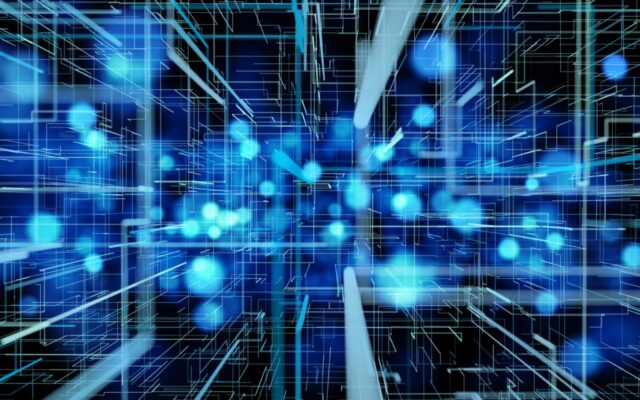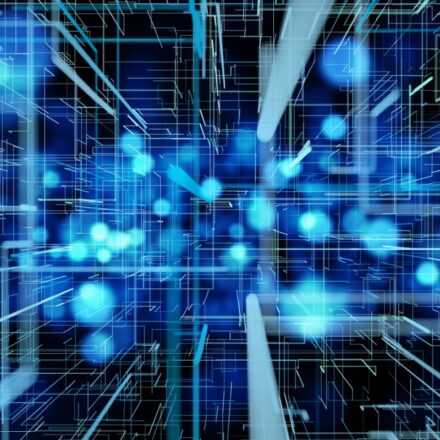Dell Generative AI Solutions launched in July of this year. Dell offers a modular, full-stack architecture for enterprises seeking a secure, high-performance, proven architecture for deploying large language models (LLM). The sudden demand for generative AI (GenAI) in the workplace has created a seismic shift in IT planning that continues to send ripples through the industry. Accordingly, the demand for GPU-accelerated servers that drive the computationally intense training and inferencing of GenAI workflows has exploded. The industry-leading portfolio of GPU-accelerated Dell servers, workstations, storage and networking is the foundation of Dell Generative AI Solutions. The Dell Validated Design for Generative AI with NVIDIA combines this into tested AI infrastructure designs with NVIDIA AI Enterprise.
Compute-hungry LLM training and inferencing demand best-of-breed infrastructure for the data center, supported by expert professional services and rigid certification with enterprise software solutions. The announcement of VMware Private AI Foundation with NVIDIA at VMware Explore is continued validation of the Dell best-of-breed approach to solutions for GenAI. Dell customers now have even more options for managing GenAI infrastructure and IT resources. With the introduction of VMware Private AI, VMware and NVIDIA promise to democratize GenAI and ignite business innovation for all enterprises.
The new platform for GenAI with NVIDIA AI Enterprise and VMware Cloud Foundation™ software, when running on Dell PowerEdge servers or VxRail systems, delivers on generative AI for enterprises seeking to integrate AI solutions into their private cloud or data center. VMware Private AI also includes support for MLOps platforms from cnvrg.io, Domino, Kubeflow and run:ai.
The VMware Private AI Foundation with NVIDIA is designed to make it easy for organizations to adopt and deploy GenAI at scale using familiar tools for managing virtual machines, containers and hybrid cloud infrastructure. By combining NVIDIA AI Enterprise with the flexibility and scalability of the VMware Cloud Foundation, powered by Dell PowerEdge servers, organizations can accelerate their GenAI projects and deliver business value faster.

Why VMware Private AI Foundation with NVIDIA?
With VMWare Private AI, organizations avoid silos within their enterprise IT infrastructure – reducing the management headaches, security risks or skills gaps that can occur when managing multiple software stacks. Being able to run generative AI solutions in your traditional vSphere or VMware cloud foundation environment marries the mature management and administration of VMware with the exciting potential of generative AI. Additionally, this solution enables IT:
-
- The flexibility of choice. A modular architecture supporting a wide range of AI software gives organizations the flexibility to choose the solution that best meets their needs.
- Confidence in deployments. Accelerate innovation and business transformation with validated designs for GenAI. Mitigate AI risks, such as data and IP leakage and model accuracy.
- Uncompromising performance. The platform supports a variety of GPU technologies and pooling of GPUs, which can provide comparable performance to bare metal.
- Augmented productivity. Automate repetitive manual tasks and processes, which can free up employees to focus on more strategic work.
GenAI in the Enterprise
VMware Private AI Foundation with NVIDIA is designed to unlock the value of data and allow teams to focus on strategic activities that bring more value to your business. GenAI LLM training and customization tailored to meet your needs can yield more accurate results and give your business a competitive edge. Use cases include:
-
- Code generation. Generate code to help developers accelerate their velocity
- Contact center resolution. Improve the quality and accuracy of customer service interactions
- Content creation/Content Management. Create and curate text, web content, graphics and video
- IT operations automation. Automate repetitive IT tasks, reduce costs and improve efficiency
- Advanced information retrieval. Quickly and efficiently find information.
- Sales. Use chatbots with increasingly sophisticated content creation capabilities

Dell GenAI Solutions
Dell has the world’s broadest GenAI infrastructure portfolio that spans from cloud to data centers to client devices – all in one place.¹
Dell PowerEdge servers are powerful and reliable, supporting several configurations ideal for running GenAI workloads. The Dell PowerEdge portfolio spans a spectrum of mainstream PowerEdge R760xa servers with PCIe-based GPUs like the NVIDIA L40s for GenAI customization and inferencing, to specialized servers like the PowerEdge XE9680 with the latest eight-way NVIDIA H100 Tensor Core SXM GPUs for massive LLM training workloads. Dell Technologies, VMware and NVIDIA are offering enterprises a new way forward with solutions that unlock GenAI across the enterprise. The companies are conducting ongoing cross-validation and certification of the combined technologies. Dell also maintains a firmware catalog and customized images of VMware ESXi operating system releases for painless integration and deployment of VMware products.
Dell VxRail hyperconverged infrastructure (HCI) accelerates the path to VMware private and hybrid cloud solutions for GenAI with VMware Cloud Foundation (VCF) on VxRail.
-
- Support demanding workloads with thousands of configuration options and future proof infrastructure with mixed generation node support on the only jointly engineered HCI with VMware
- Provide automated lifecycle management of the entire stack, from hardware to hypervisor, including NVIDIA GPUs
- VxRail was among the first HCI system to be certified for NVIDIA AI Enterprise for a curated solution to easily deploy and manage GenAI workloads
Growing Solutions for Artificial Intelligence
Dell Technologies, VMware and NVIDIA work closely together to deliver a growing portfolio of Dell Validated Designs and services for AI, which can help organizations get started with AI quickly and easily. These solutions include:
-
- AI for Virtualized Environments. This design uses VMware Cloud Foundation and NVIDIA AI Enterprise to deploy AI workloads on virtualized infrastructure for Dell PowerEdge servers and VxRail HCI.
- Generative AI with NVIDIA. This design uses NVIDIA AI Enterprise on Dell PowerEdge servers to deliver high performance and scalability for AI workloads.
To learn more, visit the Dell GenAI page.
1 Based on Dell analysis, August 2023. Dell Technologies offers solutions engineered to support AI workloads from Workstations PCs (mobile and fixed) to Servers for High-performance Computing, Data Storage, Cloud Native Software-Defined Infrastructure, Networking Switches, Data Protection, HCI and Services.


